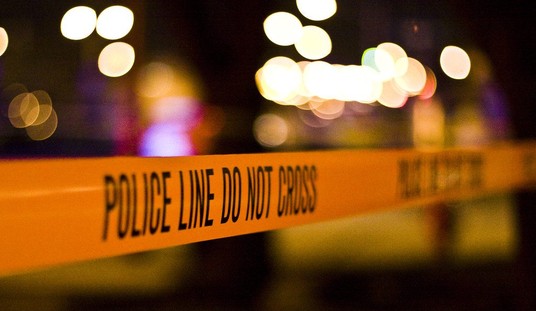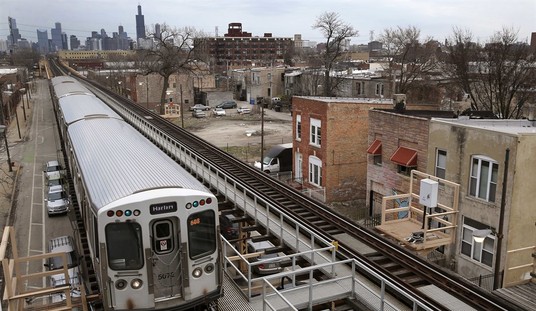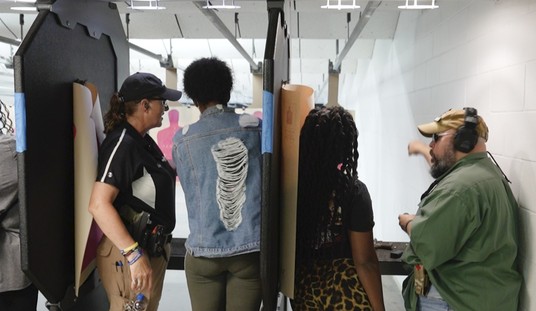Gun grabbers will use anything to push their agenda; Hillary touts dead black children, Cory Booker uses women, and they all use the NRA.
Yesterday, Salon ran an excerpt from Natalie Moore’s book titled: We are not Chiraq: Yes, Chicago has too many murders, but labeling us with terms like “war zone,” “Chiraq” and “urban terrorism” doesn’t help. Subtitled: Violence in Chicago is a symptom of racial and economic segregation — issues that must be addressed.
Oh dear.
In part, Ms. Moore’s book/Salon article reads:
I hate the nickname Chiraq.
The slang term combines “Chicago” and “Iraq” (pronounced shy-rack), a sly, albeit ham-fisted, way of linking violence in the two locales. Some young people brandish the Chiraq moniker with the same kind of pride reserved for the Michael Jordan era of the Chicago Bulls. Rapper King Louie is credited with inventing the terms “Chiraq” and “Drillinois.” He’s a drill artist, and drill music is a subgenre of pulsating hip-hop originating in the South Side (hence “Drillinois.) The trend is being capitalized on with Chiraq T-shirts that juxtapose a machine gun with the city’s skyline or the word emblazoned over a state map or decorated with the red, black and green colors of the Iraqi flag. There’s no solidarity with Iraqis, just a failed metaphor. The term has expanded beyond the city. Nicki Minaj made a “Chiraq” song featuring local rapper Lil Herb. Meek Mill made one too, featuring local rapper Lil Durk.
Chicago is not the murder capital of America, much less murder capital of the Midwest—more on murder rates versus number later. Violence in Chicago has long been misinterpreted, celebrated and racialized when in fact it’s actually a symptom of inequity. Racial and economic segregation allow violence to fester in low-income black communities. The most brutal enclaves of the city are the most troubled Chicago neighborhoods—poor, characterized by excessive unemployment, blight, food deserts, underperforming schools, high rates of preventable diseases, lack of economic development. Each year thousands of adults return to just a handful of black Chicago zip codes after they get out of prison. A large pool of parolees living in those communities adds a collective burden to those underresourced locales.
Chicago activist Mariame Kaba once told me that by constantly referring to some communities as war zones, we trap ourselves into considering only those solutions that are steeped in a punishment mind-set. The state is then the punisher.
To reduce violence, the aforementioned issues must be considered. Diversions sidetrack us from productive solutions or from focusing on the systemic problems of poverty and unemployment. The myth of black-on-black crime is a red herring that ignores the fact that people who commit crimes generally commit them against people they know and near where they live. The term “black-on-black crime” downplays poverty, racial inequality and “white-on-white crime.” By keeping a running tally of shootings, local media help cultivate our sense of fear and despair. Terms like “war zone,” “Chiraq” and “urban terrorism” seep into our consciousness. According to the running narrative, violence is the default in black neighborhoods, which exhibit few redeeming characteristics, and black people are incapable of avoiding crime.
Still, Chicago has too many murders.
And America has too many murders.
In Chicago, police receive too much blame and credit for spikes and dips in crime. While community policing and strong community relationships are vital for the city, police officers don’t control the circumstances in which most violence occurs. Meanwhile, police credibility continues to erode in some communities. The gun violence solutions often touted by politicians involve deploying more police officers on the streets or bringing in the National Guard. For them, apparently, a heavy police state is easier than dealing with structural racism.
Wow, she’d be fun to sit next to at a party, am I right?
Let’s break it down for those who don’t know, which obviously includes Ms. Moore: There have been 142 total homicides in Chicago so far this year, 124 of those were from gunshots which is almost 88%. Now, of the information we have, keeping in mind that the police in Chicago only have a 14.7% homicide clearance rate, 79% of victims are black and 75% of assailants are black. The city reports a shooting every 2 minutes and 47 seconds.
I’m sick and tired of people making excuses for violence. There is no excuse. They see how murder tears up their community but instead of working on solutions, they just make the problem worse. And why wouldn’t they, there are no consequences for their actions. They know they have an 85.3% chance of getting away with their crime!
In my opinion, Chicago has earned the nickname Chiraq. The minute they start cleaning up their act, I’ll stop using the term they may not like, but clearly deserve.








Join the conversation as a VIP Member